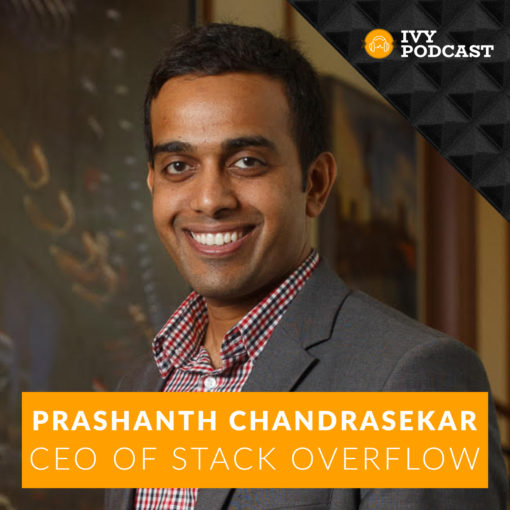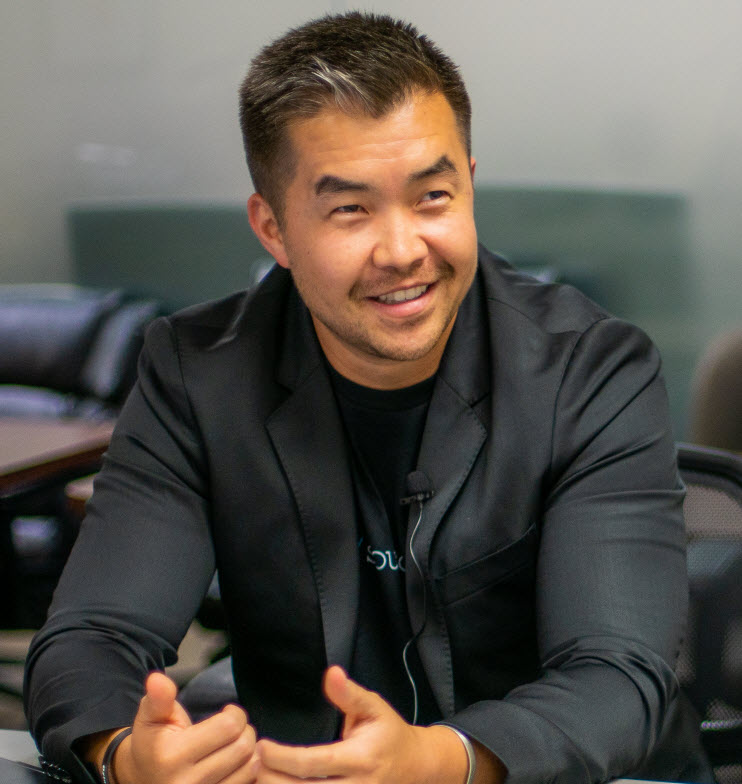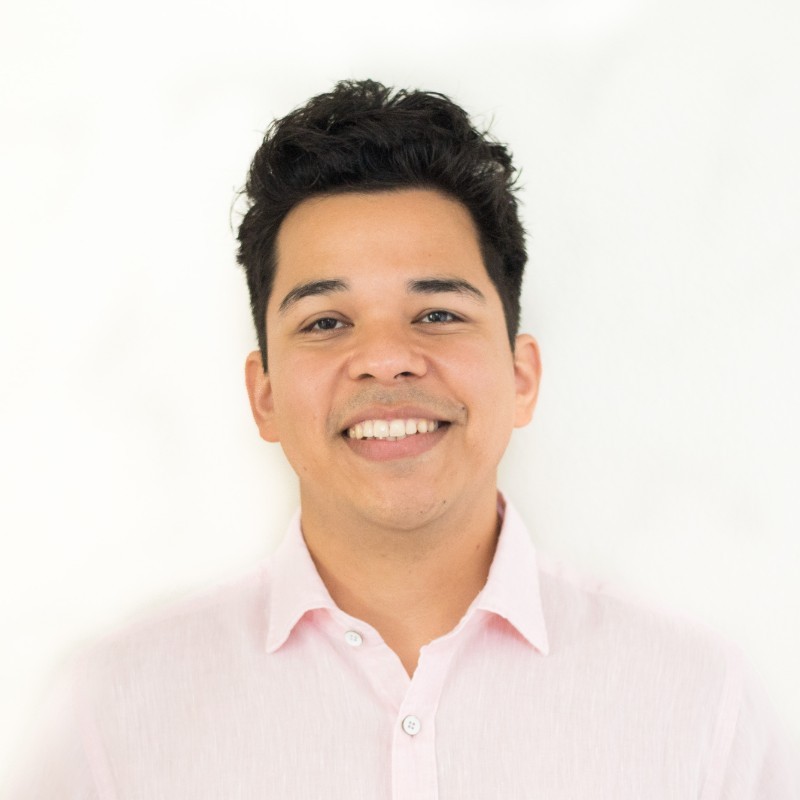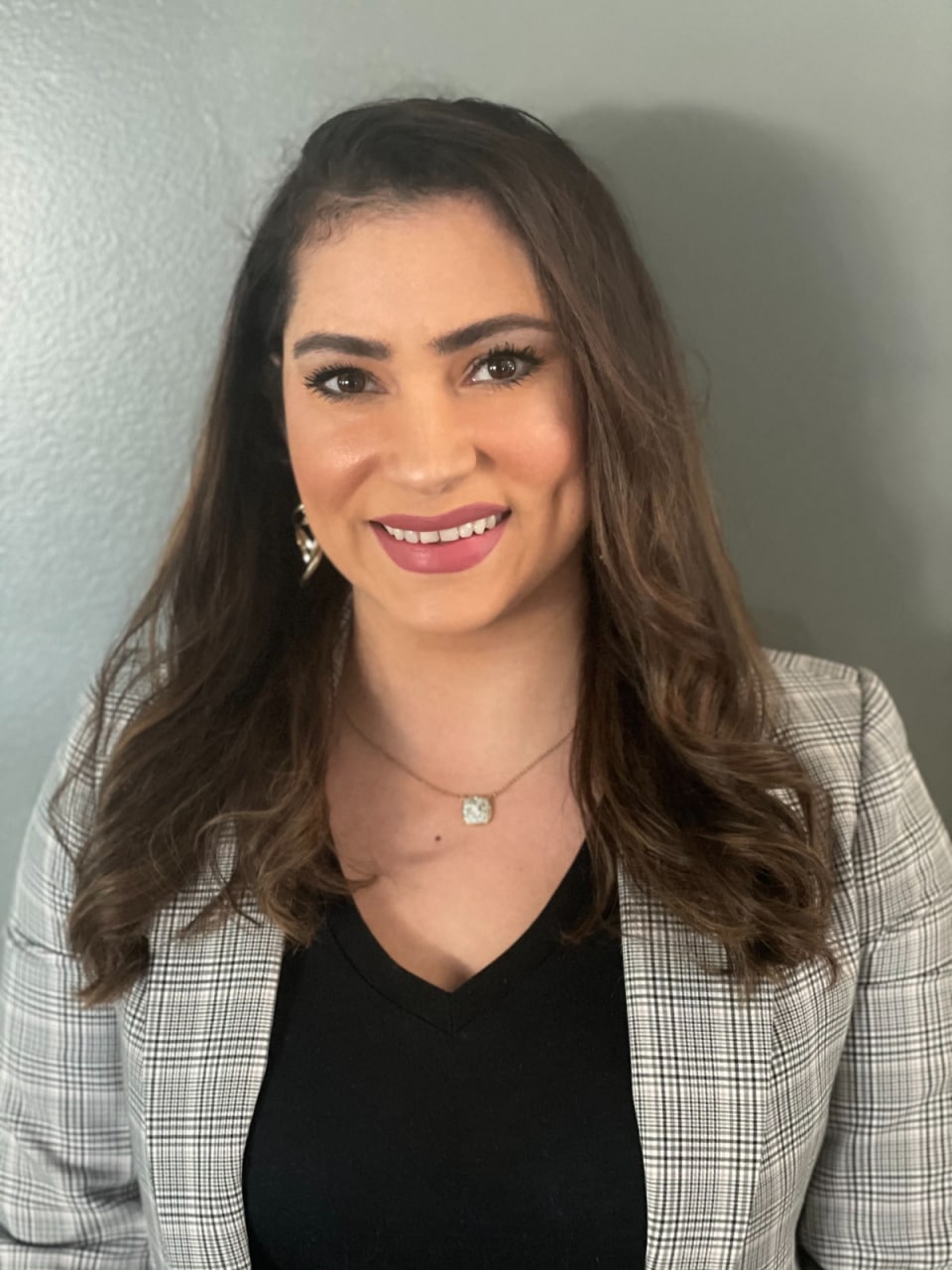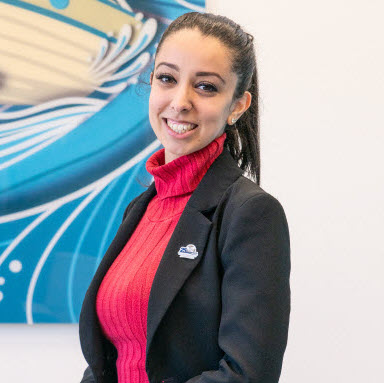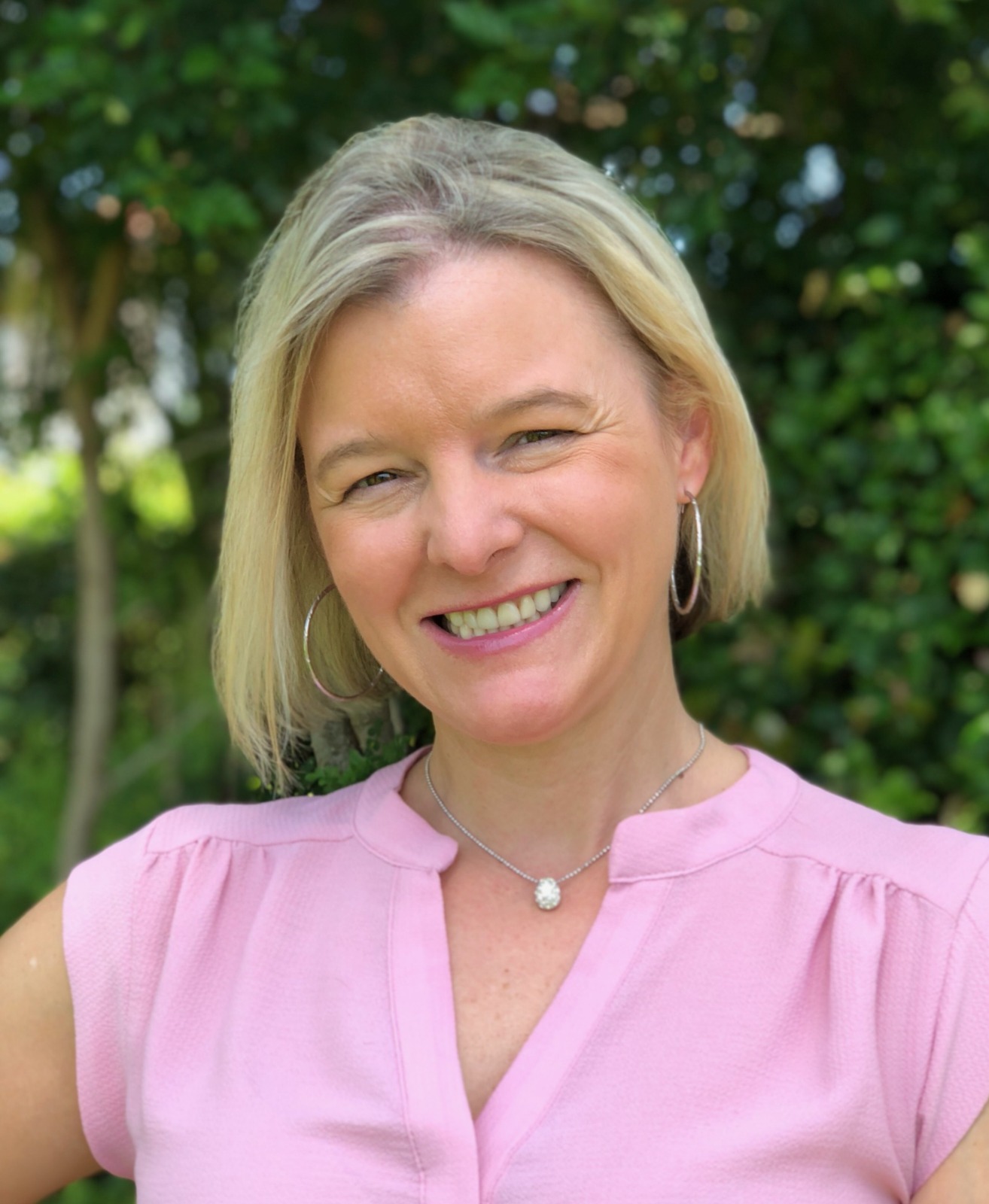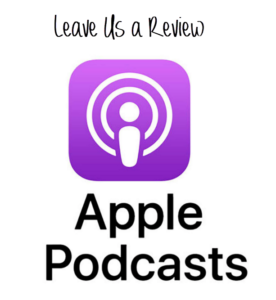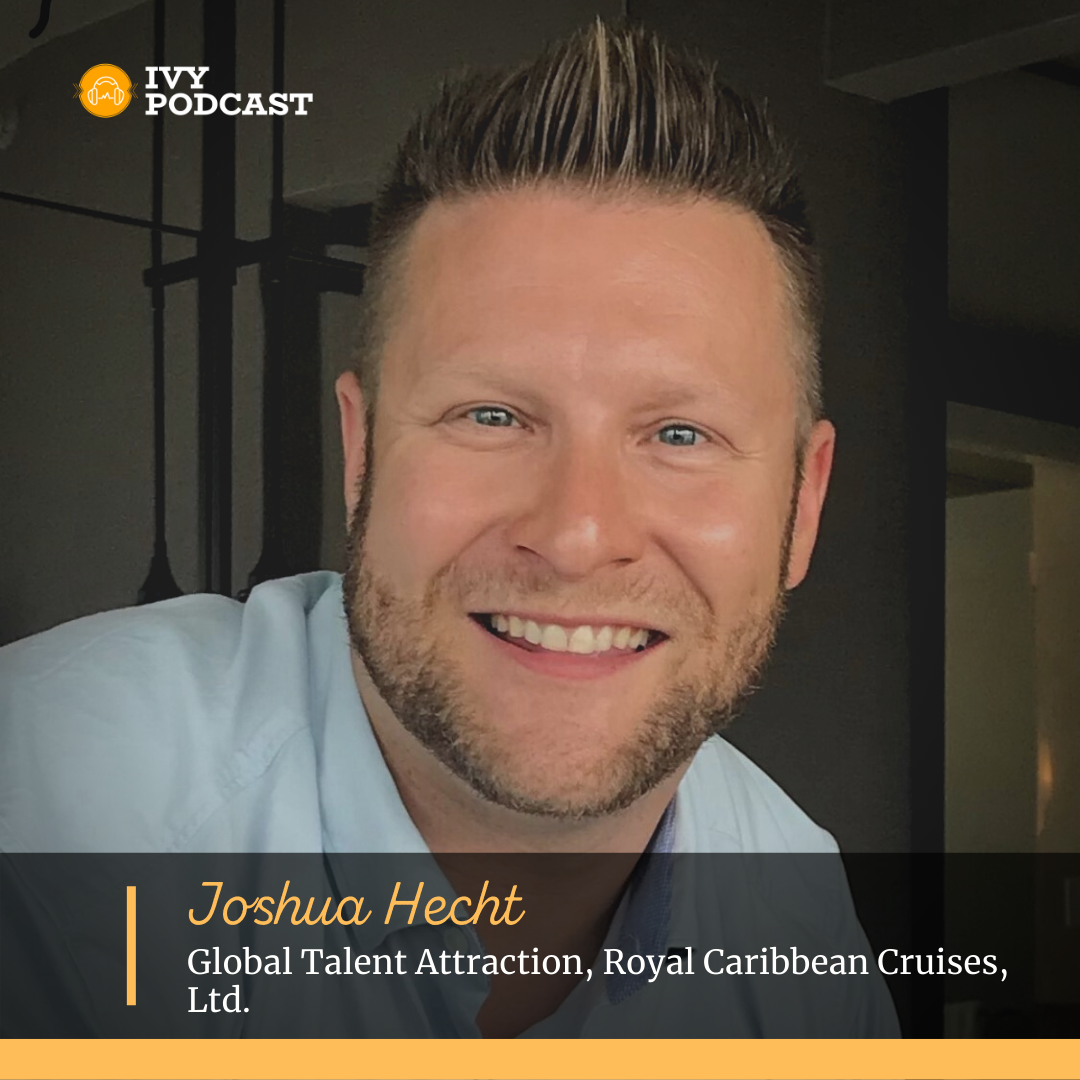
Joshua Hecht is originally from New Jersey and moved to Fort Lauderdale 10 years ago. He has been involved in recruitment, human resources, and business development since 2006, and in a leadership role for the past 10 years.
He has led global teams in very matrixed and KPI driven environments. Some success stories of Joshua’s achievements include winning a global CEO prize for the highest number of sales/deals within recruitment two years in a row, and was rewarded with trips to Dubai for both wins. Another major milestone Joshua has met was implementing a global recruitment function/team with opening offices in the UK, Barcelona, and Singapore, along with managing offices in Florida and Houston, TX.
Joshua has been with Royal Caribbean Cruise Lines for about two years now as a Lead Recruiter for the New-build and Fleet Modernization departments. He is married and has a baby girl on the way. His passions include fitness, football, and mentoring and leading a successful team.
Episode transription:
P: Welcome to Ivy podcast. I am your host Priscilla Torres, and I am being joined with Joshua Hecht who currently serves as a talent acquisition leader for Royal Caribbean group. Joshua is not only a subject matter expert in recruitment, human resources and business development since 2006. But he has served in a variety of leadership capacities for the last 10 years, has led global teams in matrix and KPI driven environments, and is incredibly passionate about some of the topics that we're going to talk about today. So Josh, welcome to the podcast. Thank you for joining us. J: Thank you for having me. I appreciate this and I love joining anything related to at Ivy Podcast. P: Nice. Thank you. I very much appreciate that. So if you don't mind getting us started and kind of just sharing a little bit more about what your day-to-day or what your career is. J: So the day-to-day is obviously changed a little bit due to COVID. Pre COVID I'm obviously here at Royal Caribbean. I was responsible for our new build and fleet modernization departments, recruiting all different types of talent, hiring for a number of departments within those two post COVID roles have definitely changed. We've seen our departments transform into something that we've never seen before, due to these unprecedented times. So my role now on top of recruitment or new build and fleet modernization, I'm responsible for logistics, procurement, supply chain, global Marine operations, and then on top of that, we've undergone a number of projects where we were tightening up and buttoning up the process for Royal. Once we get the green light to return to service, we will be completely ready, safe, and sound for our crew, our passengers, and our communities. And we've just been working on these projects very diligently on hopefully coming to a fruition very soon. P: I completely agree. I know that it's been tough specifically with the hospitality industry and the impacts. I mean, COVID-19 for the most part has impacted all businesses, but more so for hospitality and I've love to see these cruise industries or different hospitality organizations who have really been. Incorporating crisis leadership as one of their fundamentals in the way that they're leading their organizations forward, just to provide hope, to continue that momentum and that excitement within their staff to keep going. And I know that's one of my favorite topics on crisis leadership and an area that I've been studying. So, can you tell me a little bit more about how the COVID-19 obviously impacted your industry? What type of strategies or practices did you put in place to practice that crisis leadership within your organization? J: Great question. And of course, why not start off with that? Because I think that's the most relevant, most important to us, to you, to everybody. I think globally, I worked very closely with our global security team. Our global security team manages global intelligence threat analysis. Like COVID 19 of course, which is the hottest and number one topic for us, given the impact that COVID-19 had on our industry, we had a number of strategies and practices that are put in place by our global security team and for now, the analytics team. So COVID-19 was an instance of the unexpected. We didn't expect this, right? So the company utilizes multiple strategies to manage this situation. And working with the likes of Ingrid Stottlemyre, who I respect greatly, who actually I work very close with. She's our manager of global security and intelligence analytics. A couple of bullets that I want to just go over real quick leading decisively. Right? So that's number one. As soon as we recognize the impact that COVID-19 had on us and our industry, we had put together kind of cross-functional teams dealing with medical operations, public health, global intelligence, situation management, and the company instituted a kind of like, and every day leadership meeting and every day since COVID has hit to ensure all relevant issues could be discussed and kind of a collaborative and dynamic environment, right. We want to hear from the likes of everybody, that would be relevant to that discussion and then continually frame the crisis. So we recognize that COVID was. And evolving issue, it was growing, the spread was growing and for that, we cannot become too wedded to a single approach or a single mindset. So this daily meeting that they have allowed for plans to evolve, they look at events from perspective hours of the day, the days of the week, the weeks of the year. And so far, how it's been going and how it's progressed. The spread of the virus where it's hit from a health perspective, this allowed for us to take any type of precautionary measures that we felt deemed necessary for guests and crew in advance from the business. This perspective, this allowed us to kind of track and monitor where the virus impacts most, where it's headed. If we can forecast that. And two, just our business, and again, this is all from these daily meetings that our team has. And then actively just communicating, to this day, the company sends out, what we call the daily COVID-19 summary of all major issues associated with the pandemic, where it's hit hardest, how it's affecting us any differential, operational elements, ports, itinerary, crews and crew administration. It's included with the media, the public and any one of our travel partners. And then, finally, we want within these meetings to have some sort of actionable intelligence, right? So one of the things that allowed the Royal Caribbean group to navigate the COVID crisis has been an emphasis on actionable intelligence where we cast a wide net. Through our leaders, through our travel partners, through our security management and crisis management team to obtain crucial information from a range of resources and this allowed for the information to inform multiple viewpoints and allowed us to stay kind of ahead of the curve. As much as we can. So although the cruise industry has been hit disproportionately by COVID, on the business side, Royal Caribbean employed all of these crisis leadership principles from the beginning to protect us, our crew, our guests and the health and safety of all of us. P: And I commend you all because you guys are thriving in this crisis leadership methodology. And I'd love to see that I wrote down some notes. You increase safety measures. How important was that to not only provide that psychological safety for your employees, but also keeping a forefront of making sure that you're keeping your guests. And any, any future stays safe as well. The fact that you created collaboration across these cross team models, and that seems to have been very successful communications. It comes down to communication and it sounds like you guys are doing such a wonderful job with that. And it's so focused on, on the future. And I look forward to seeing how we'll be able to get back to normal. J: I know, I know. High-tech, can't wait. Uh, all of us can't wait, you know, we weren't, we worked very closely with the CDC. Of course, we're mandated basically by the CDC and they announced, I posted on LinkedIn a few weeks ago. Actually maybe two weeks ago that the CDC announced, the cruise lift, the framework for phase of resumption of ship operations. So that was like, that may, that was on a Friday. And my first line of my sense on LinkedIn was this made my weekends. So it's just we're starting to see the light. It's a glimmer of light, a glimmer of hope, but it worked. We're getting there. I can feel it. And us as a company can feel it and we're starting to see it. P: Of course, absolutely. Well, we're excited as a Cruz junkie excited. I'm going to shift gears a little bit and you have such an incredible wealth of knowledge with regards to recruiting specifically in a global market. So I'd love to just pick your brain on some strategies. So given that. We've had to shape and change the way that we recruit and retain our talent in this market, leveraging digital agent technology. Can you tell me some strategies or maybe some practices that you have found to be successful in recruiting during these times? J: Yeah, of course. It's been, it's been different, we've never seen, nobody's ever seen anything like this. So me being in recruitment for 15 years, everything has changed, I'll just start off with that. And really companies, Royal, every other cruise line, all hospitality, every company really who's been tremendously affected by this has to first and foremost, just adapt, as much as we move to kind of a much more virtual and digital age, where we're coming to interview with podcasts and do it conducted interview using t-shirts and shorts. I mean, that's kinda of the norm now. So I think some of the strategies that we're leveraging from a digital and technology perspective, but also just overall what hiring managers should be doing. And hiring managers now have to make virtual hires. I mean, really it's essential that we hire for business critical roles first and foremost. And that's been done before. We've hired virtually. Obviously never to this extent, everyone who was once familiar with interviewing in person and I find myself interviewing much better in collaborative environment. Speaking in front of hiring managers, speaking in front of potential employees in person is now I don't want to say a thing of the past, but for now it is so hiring is just completely different. So I believe that some of the strategies that I've used in some of my team have been more panel interviews. There's more interviews happening for one particular role because we can't really get a sense of how they interact because we're not physically there with them. So there's more interviewers interviewing candidates for potential business critical roles. The fact that companies must realize now that each role they fill. It must be like the cream of the crop, the best of the best. And ideally for business critical roles, this is what we've shifted to. Personally, whenever I conduct the initial interviews with candidates, before I send them to a hiring manager, I set the stage for them. I have to set the expectations that we're going to meet. We use Microsoft teams. We use WebEx. Sometimes we'll use zoom, so I want to make sure that my candidates are fully prepared for that, that they have the right background lighting, the right setting to interview. Well, some of the technologies that we've moved to, we've moved away from Skype, which was actually a good thing. I always liked Skype, but I find the accessibility and the technical capacity that Microsoft teams offer is a lot better suited for us than what we want to accomplish. Sharing documents, sharing PowerPoint, presentations, et cetera. Because again, everything is virtual. So, I try to set the mental state for these candidates going in on interviews. But I also set the mental state for the hiring manager. Whereas if there's technical difficulties or if the sound shuts off to make sure that they have their phone number accessible. So these are all things that kind of changed the game when it comes to technology and our digital virtual interviews now. So I think that in order to assist with seeing how recruitment and retention strategies get better. Well, it's really just setting the stage for both the employer and the candidate interviewing, but you said that, cause I think that's something that companies should do more of and it's really, we're learning together. That's been my model this year. We're learning and growing together, and this is uncharted territory. And sometimes some of these candidates, one has not interviewed in a really long time. Now they're being forced to interview through a computer and I'm a people person. So I, even though I am a semi-professional I guess, in this capacity where I'm constantly in virtual meetings or doing these podcasts recordings virtually, I am very much a people person. And you can't, as you mentioned, you can't see those interactions and you can't see that body language. That's so crucial to those people skills, right? When we're making these decisions, these hiring decisions. So it's hard. So being able to set the tone and educate your candidates and just check off all the boxes to make sure that they are not only dressed professionally, but that they're in a good environment where they have enough lighting and enough sound. P: I think that's wonderful that you guys are doing that. And I hope our listeners can. I'll take note of that because there's definitely some things that we can do differently with improving our TA strategies within our own organizations. J: Yeah. I agree. P: When it comes to onboarding, what type of changes have you seen? Cause now we're doing everything virtually, right? We're doing all the recruiting process and oftentimes our candidates are not going to meet any of the well that they're working with for months. So what, what can you share with us with regards to onboarding practices? J: So onboarding physical onboarding has remained the same right? We've switched onboarding companies as far as background checks and drug tests, et cetera. But when it comes down to the personable touch and the experience, the candidate experience that's changed quite a bit because. I remember my first day going into Royal, my desk was set up by my HR business partner beautifully with Royal Caribbean t-shirts and pens and notebooks that et cetera. And I just felt so welcomed. Well, we're trying to take that experience and bring it to their home. So a welcome package will come with pens and t-shirts and marketing material. And here are all of our ships and colorful pamphlets, et cetera. So, you know, we want them to feel like they're part of the team, even though they're not there. And no, one's there to be part of 18 physically. Right? So the onboarding experience has changed quite drastically where I think the number one thing that we're focused on, not that we weren't before, but even more so now is communication. And it starts from me and my recruitment team and operations to make the candidate aware of. And steps that are going on in the process to make them aware of. If we've got your drug test back, we've got your background check back. You're clear to start. We're going to send you your welcome package. We're going to send you your IT equipment with a welcome letter and we want to make them feel extremely welcomed and feel like they're having the greatest experience, even though we can't provide that physically. We also want to engage with our hiring manager who has hired them, this person, because that's going to be their, their manager, their superior. The constant communication between myself, HR business partners, the hiring managers, all with this one particular employee who we have hired. It makes all that much of a difference. Everybody recognizes the situation we're in and it's the best feeling when you've been searching for a job and all this. And Royal Caribbean offers you a job and or anyone for that matter offers you a job after a year, however long you've been searching and to have that welcomed experience that we once knew, and we miss being brought to your home. It's a game changer for them. They still feel like they're part of the team. They still feel like they're a member of Royal or whichever company they join. P: So I think just the communication aspect as well, just grown over these past seven, eight, nine months. And even just being able to keep them engaged. Even through, not only through the recruiting process, but once they're onboarded, it seems like you guys have done such a great job and making them feel welcomed, allowing them to see a glimpse of your culture and feel those emotions. That you would feel like we started in-person and had those types of same experiences. So I'm curious to see, what have you been able to implement within your teams that you manage, or within the departments that you work with to keep staffing engaged during these times? J: Well, we do some fun events, like virtual happy hours, which is, I think has been the norm. Since the beginning of COVID. So once COVID hit us and I'm sure for many others, this is when really things started to take shape. And then for us, and again for many others, but I'm speaking just of us.There's, this is the time where projects were created, as projects that we didn't even really. Think of, or maybe we put on the back burner because we were so busy, with our everyday life at work and the hustle and bustle that we go through. This is the time I don't want to say where it slowed down, even though for a lot of people, it has. What I mean by slowed down is now is the time and the way we keep employees engaged, besides the fun, happy hours and the virtual costume parties for Halloween, et cetera. Projects on the backend where we button up the process, right? Where we start tightening up everything process and protocols that we hadn't had once before, or that we kind of just put off before every process and program that still adds value to us at Royal Caribbean. And of course, every other company I can imagine has been tightening up. So this means when returned to service happens and we get the green light from the CDC and, you know, the community feels safe to do so we can return to service. We can look back at what we've done and accomplished over these months, or however long we'll be going through this. And everything will be taking shape and taking form for us to hit the ground running all the way from just speaking on TA and talent enablement and talent attraction, from enhancements to our ATS, which includes the candidate experience as well. From our human capital management system, it wasn't working for us, did our system talk to our ATS, et cetera. Those are the types of projects that we've undergone, even projects such as vendors like. Recruitment agencies will be utilized by Royal, even cleaning up that process. It's the littlest things that kept us engaged over these months and, however long to come, that have kept us really focused and laser focused onthe end result, right? So we wanna the process and procedures, the projects and tasks, the tasks, things that were once just an idea have now become true to what they should have been. So we've been working on making sure that once we have that sale order completely lifted and we're back in service, we will be ready across the board as an organization. And our teams have been diligently waiting for that moment. And when they come. We're going to be ready because of how engaged our employees have been. And I've never seen in the history that I've been working in my career. A greater team than the one I work with now. And I'm sure for so many other companies that can say the same thing, because here's an end goal to get back to normal and we want this , enough is enough and we can't control COVID of course, but what we can control is what we're doing right now, the safety procedures and processes that we're putting in place. And I'm sure this whole long exercise of taking all this time to just really take a step back. Reflect, look at areas of opportunities, make enhancements within our processes. I think many organizations such as myself, we're running so much more efficiently and we have such great new processes that are providing these new experiences for candidates. And in my opinion, I think we're more engaged more than ever, not only a hundred percent. Anyone just within our own organization, but with candidates too. I mean, you even mentioned that earlier that you touch these candidates much more often and a lot more people are speaking to them. So what a beautiful, unique opportunity where these new hires are coming in and they've met. You know, seven, eight, nine people from your organization. Those are nine connections that they already have started in a virtual. I find myself and my colleagues and so many others who know my friends who I talk to, or who were in corporate America, et cetera, are running their own businesses that we're working from home, right. We're in the comfort of our shorts and t-shirts, and we've got kids running around and, we're trying to cook dinner for our family, but then after that, it's seven, eight o'clock. And I find myself back at the desk, which is not a bad thing. I mean, my family is still around and we're still here and we're all paying attention to each other, even more than ever. But you know, people are working longer hours harder, but at the same time, it's becoming more manageable and working from the comfort of your home. I don't think that I realized how convenient it is, and of course I want to go back to the office. I think we all do. But given the situation we're in, I think that that even engages me and my colleagues even more. P: Of course, absolutely. And having a company that recognizes that and forefront makes a whole world of difference. So it sounds like you guys are doing amazing, amazing work. J: Thank you. P: You're welcome. I'm loving this.This is so great. I have so many questions. So when we, we talked a little bit about competencies are things that we can do to help us be successful managing teams during COVID. So when we talk about what skills or competencies do we believe that leaders in talent acquisition, or maybe an HR would need to work on in the future to be successful, post coven, So I think that the strategies that companies need to get it's cause to consider and a successful hire. They really need to hone in on what they're really hiring for. And after pre COVID. It's not that I don't think hiring managers weren't focused on it, but now more than ever, we're hiring simply for business critical roles, right? So these executive leadership teams company-wide they really need to hone in on what they're trying to hire for if it's business critical or not, and how will this position and this potential employee impact the company in a positive manner. And again, not taking away anything from that prior to COVID, but really focusing on what's the purpose of this hire, how are they going to add any type of value or bring value to the table? The strategies that I think should be put in place from companies which we've done already, I think companies really need to develop some sort of KPIs and metrics around almost every role. I mean, even if it's a technical role, you know, where KPIs and metrics aren't necessarily deemed essential where in the sales role, KPIs or recruitment KPIs are absolutely essential, but I think every role should have some sort of KPI or metric so they can be measured on their delivery on their performance. I think one of the biggest investments that we're making are upgrades to our applicant tracking system, again, for the candidate experience. I think that's a tremendous strategy that companies can take on and really have. Not just an ETS, but systems that talk to each other. So once a candidate is done with their interviews and they're hired, it automatically directs them to a background check process or an onboarding process. So that speaks volumes to us, to the candidate. It's not necessarily less work for us, but it's more focused and we don't necessarily have to keep our eye on it where it's working for us in the back end. But I really think those KPIs and metrics are extremely important. Things like on the ATS getting the right candidate, putting in pre-qualification questions to weed out. Candidates that may not be a fit. And that's the case, wherever you go, wherever you are, wherever you're hiring, you're going to get a lot of candidates who are just, unfortunately are just not a fit. And in order to weed them out, pre-qualification questions are I think, essential. And then just developing a true hiring plan and committing to these KPIs and metrics that we put in place. I think also another strategy is having a really strong marketing presence, right? We've got some really strong marketing people within our organization. And having a marketing like delivery plan should be heavily considered and companies need to establish best practices in that area along with companies need to establish best practices for diversity and inclusion, right. To create sustainable talent pools from trusted sources within their networks. I'm really speaking heavily because this is my profession on the talent acquisition, talent enablement side, but just in general strategies that companies can use. I'm sure the powers that be and the like-minded people are collaborating every day on how they can make this just a better situation for themselves than it once was before. P: Completely agree. And specifically on the key performance indicators, there's so much value that's behind just having goals set up for any role, because in the end of the day we need to move the needle forward in no matter what capacity, what industry or what we do for line of work. So being able to implement that methodology and that mindset of using goals to really drive your results and use it to measure how we can improve or what we need to do differently to improve service, to improve quality of care or whatever the case may be. Ao I love that you highlighted that. And what you talked about, some additional competencies that are necessary for talent acquisition leaders, or HR leaders who are in the process of recruiting for positions today or in the future. And you've had such great success, right? And finding talent across the world. I was so impressed with reading your CV, and you're so humble that you don't share, you have such a wealth of knowledge on this topic, and I'm just curious, like, how did you implement a global recruitment function? How has that experience and how did it shape the way that you view talent acquisition? I've never recruited outside of the United States. So I'm just curious to see, you know, what that process is like and what that experience was for you. J: That's a great question. Thank you very much for those compliments. So, you know, working in a global capacity, which I've done before Royal Caribbean, managing global teams, I don't manage a global team here, but I recruit globally. And what I mean by that is Royal Caribbean. When I mentioned at the beginning of our conversation that I work, that I've pre COVID. I worked in a new build fleet, monitorization new our ships are built in shipyards. Across the globe, right? So those shipyards, yes, they may hire their own talent, but Royal Caribbean obviously needs to have a presence there too, for example, in our Kona Italy yard where our Silversea edition, our silver seat brand is most dominant, we hire a lot of technical people there Naval architecture, Marine engineering, architecture and design. So finding candidates across the globe, it really is right at your fingertips, if you think about it, because you know, LinkedIn for me has been my number one tool ever since I started recruiting. I find my candidates not just through LinkedIn and that type of network, but referrals are my best friend. So if I hire an engineering manager and then Kona, or if I hire an engineering manager, a technical director in Lovitz, or I think auntie area and one of our yards. They'll refer candidates to me. And I'm hoping that they would also, because of the experience that I provided for them to get them on board managing these people, it's not necessarily done by me, but our Royal staff, we have offices located across the globe, as everyone knows, and we've got some very intelligent, very outgoing, enthusiastic, and not to say the least passionate, people who these offices lead, these yards lead these areas and regions throughout the globe, and working with them has been a complete, a privilege of mine and honor to work for them. I've learned so much from them, the candidates that I hire. They have similar backgrounds to these leaders that lead our organization globally. So working with them and talking to them about their background and understanding what exactly they're looking for. That's crucial for me. Royal Caribbean is a massive company, right? Just like the others. And the job description is a job description, right? It's very mundane. Sometimes it's just plain. So having these strategy meetings and strategy calls with the hiring managers who are hiring for these roles globally and discussing exactly what they want, because the job description will say one thing, but a hiring manager may say something completely different where they're really focused on. I really want XYZ, and it doesn't necessarily say that in the job description. But talking to them and understanding what they're looking for helps me find these candidates. And that's when the fun of recruitment really starts the Boolean searching the filtering of candidates, the filtering out VAV, keywords locations, regions, years of experience. I mean, to me it sounds nerdy. That's that stuff is fun. P: Of course, absolutely. I mean, I love recruiting, I guess that's why we're in the talent acquisition space. Um, but it's a very rewarding career to say the least being able to find these homes for, career homes for these incredible passionate staff members, there's nothing more fulfilling than that. And of course moving the objectives of, or the business outcomes forward. So it's like a win-win situation and we get to meet people around the, or you get to meet people. I love talking to people with different accents and different cultures and I've just, it fascinates me, I feel like it kind of molds me too. To be an even better person, because I'm talking with so many other people from across the globe. It's incredible. I love it. What a rewarding career. I just love talking to you. J: Thank you. P: So I'm going to end with one final question and I'd love to end all of my podcast episodes with this same question. So what career advice would you give to young professionals who are looking to break the ceiling? J: Okay, this is a very good question. And just thinking about it now kind of I want to put myself, I want to put myself in these potential candidates, shoes, right? So candidates who are not young professionals, but even candidates who are just unfortunately not gainfully employed any longer. The best advice I could give. First of all, do your research, no matter what, always your research, but make sure you go into any interview with an answer to what value that you can bring to the table. And I'm sure anybody who's listening to this is going to say, well, of course, I'm going to do that. That's the objective. Well, these are the times where you really need to dig down deep, right? Do a little soul searching and really figure out what are my key attributes that I will bring to the table. And how can I add that in terms of what value I'm going to bring to this position and to the company. So standing out amongst the vast majority of which has never been harder before as of right now. So you really need to identify what your strongest skills are and what you can do to apply those strengths and skills to any organization. Another thing is companies are hurting, they're hurting revenue wise, cash wise. So how can you bring any type of cost savings to the table? This is where I'm where, you have to really dig down deep. What can I do to help with cost savings, to help a company save money, no matter what role you're going in for, and again, do your research really prepare yourself? I was reading an article on CNBC the other day and I actually wrote it down and CNBC had mentioned three things. So, one was 84% of recruiters are in the process of adapting to their hiring process to facilitate remote exchanges, right? Like we've been discussing this whole conversation, which means you who are listening as a candidate right now in-person interviewing is sort of a thing of the past. Let's just say for right now. So you need to make sure and take that extra step on how you're going to add incredible value while you're on this interview. What's going on now. The hiring manager or managers, once they leave the interview. And they recall when they rejoin and collaborate, what's going to. How are you going to wow? Then, another point that CNBC mentioned of those 84%, 58% are now using social media networks, like LinkedIn, Facebook, Instagram to connect with potential hires. It's something that we've always done, but I think even more now. So for those of you listening again make sure your social media is cleaned up. Clean to the whistle, buttoned up, make sure your posts are legitimate. Make sure you are careful what you share because people like me like Priscilla, like hiring managers, you know, we're looking because we want the best of the best. So we're going to do even more research on you than we ever have done before. So button up your social media, and just the last thing that they mentioned, a growing army of recruiters are also turning to a video conference to screen interview candidates. We know that. So just make sure you have a good setting, make sure there's no interruptions, uh, make sure you're dressed. Like you're actually physically on an interview, you know, so all of these things are extremely important. But my number one piece of advice, despite everything I said is you need to be an innovator. And you need to act on it and, and identify your strengths and how you can apply them to the position you are interviewing for and make sure that you have done all of your research to make sure that you land this job. And go in there with confidence. Confidence is key. P: I love that confidence most definitely. And being able to dig deep and look at our strengths. I think most of us have gone through a similar activity. I hope, during these times, just to really reflect on what we not only bring to the table, but what we can do differently and be the best versions of ourselves. So I love that you shared that. Thank you so much, Josh. This was an incredible episode. You provided such a great index on all of your experiences and everything that you bring to the table, and you are so valuable at Royal Caribbean. So I commend you and your team for doing such wonderful, wonderful work. And I look forward to going back to normal so that I can cruise too. J: I can't wait to get on a cruise ship. P: I can not wait. Oh man. I would typically go like twice a year. J: So I that's it. Thanks for having me so much. I really enjoyed this request. And I love working with Ivy Podcast. P: Thank you, Josh. I appreciate it. Have a great day.






